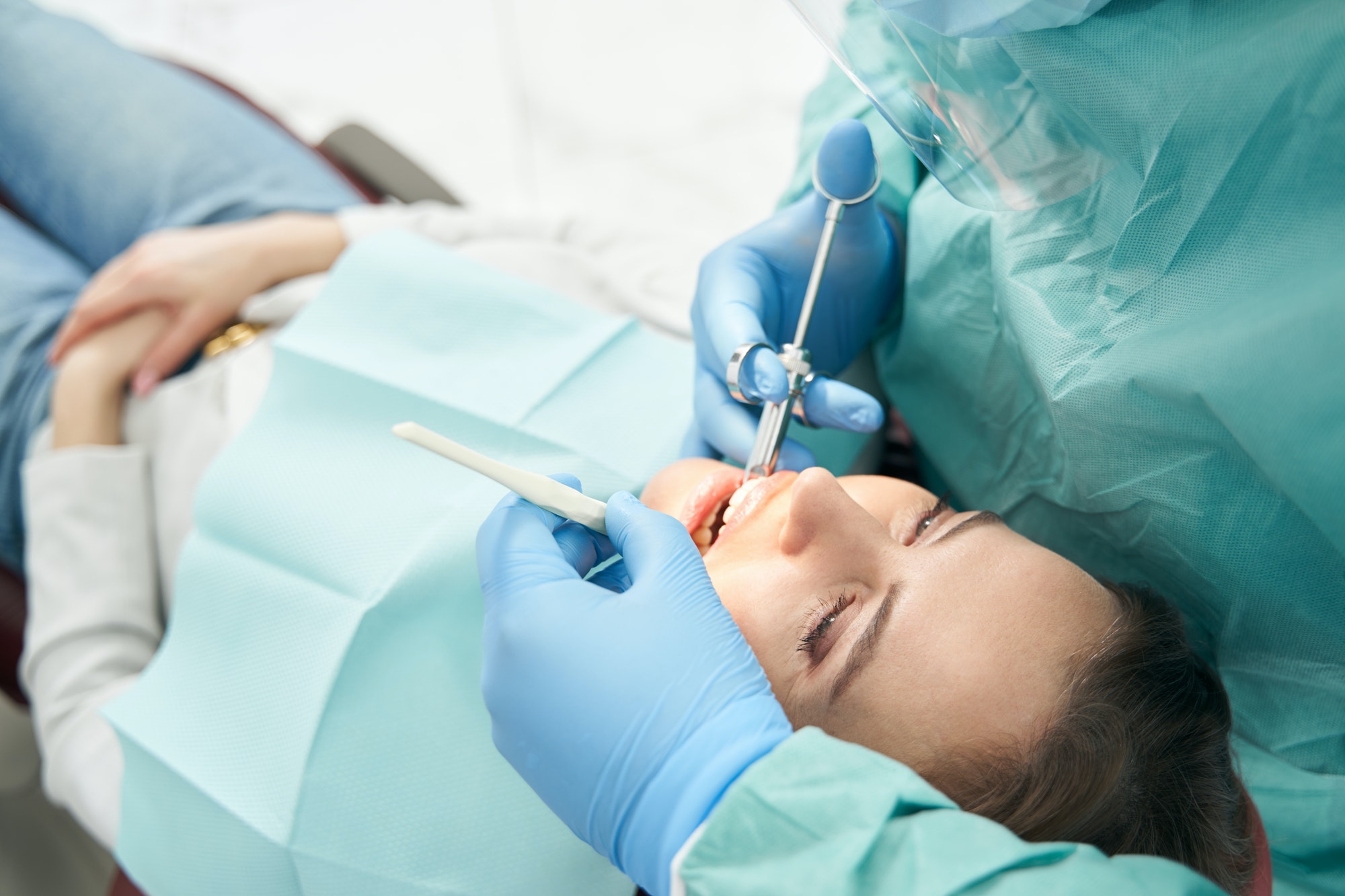Periodontal Plastic Surgery
Periodontal Plastic Surgery refers to cosmetic procedures performed on the gums to enhance the appearance and health of the smile.

Esthetic Crown Lengthening
Those who feel that they have a “gummy” smile can greatly benefit from esthetic crown lengthening. This relatively simple procedure usually takes about an hour to perform and is essentially a “gum lift”. During the procedure, the doctor removes excess gum and bone tissue and reshapes the smile to expose more of the natural tooth. While the procedure can be performed on just one tooth, it is most often done to the entire smile. The end result is that more of the natural tooth is exposed creating a wider, more beautiful smile.
Esthetic crown lengthening can also be done to preserve the health of the smile. Removing excess gum tissue can help control and prevent periodontal disease. Increasing the exposed surface area of the tooth will decrease the depth of pockets between teeth where bacteria can grow and harm your teeth and gums.
Prior to the procedure a local anesthetic will be administered to prevent pain and discomfort. Small incisions in the gum tissue will be needed to separate the gums from the teeth. In some cases, a small amount of bone will also need to be removed to create a natural smile. Once the procedure is completed, the doctor will clean the incisions with sterile water and place sutures and a protective bandage over the area to encourage the teeth and newly contoured gums to re-attach to each other. A follow up appointment will be needed one to two weeks after the procedure to evaluate healing.
Functional Crown Lengthening
Sometimes functional crown lengthening will be needed in order to perform a cosmetic or restorative procedure. This may be the case if a tooth is too far decayed, broken below the gumline, or has insufficient structure for restoration like a crown or bridge. In cases like this, the dentist may be required to lower the gum and bone levels to expose more of the root surface so it can be restored. However, simply trimming back the gum line is not sufficient. Instead, the dentist will need to reshape the gums and supporting bone to allow for adequate room to place a high quality restoration.
The procedure is similar to esthetic crown lengthening in that a local anesthetic will be administered. Small incisions are required to remove the gum tissue and reshape the area. When the procedure has been completed, the dentist will place sutures that will need to be removed in one to two weeks. After the area has completely healed (6-8 weeks), the final restorative dentistry such as a crown or bridge can be placed.
